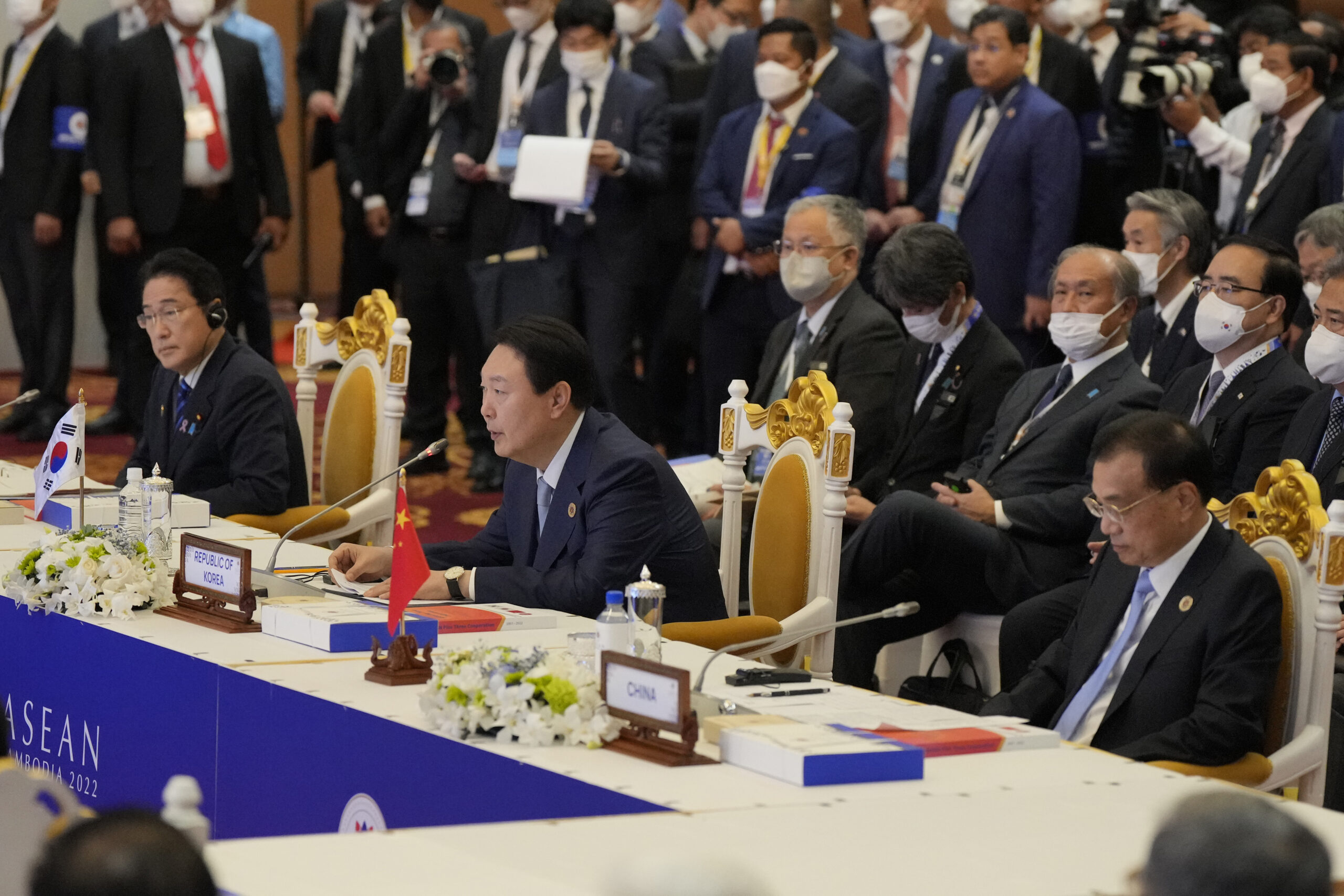SEOUL, SOUTH KOREA (AP) – Leaders of South Korea, China and Japan will meet next week in Seoul for their first trilateral talks in more than four years, South Korea’s presidential office announced Thursday.
The trilateral summit among South Korean President Yoon Suk Yeol, Chinese Premier Li Qiang and Japanese Prime Minister Fumio Kishida will take place in Seoul on Monday, Yoon’s presidential office said.
The three leaders were scheduled to hold bilateral talks among themselves on Sunday, according to the South Korean presidential office.
Since their inaugural stand-alone trilateral summit in 2008, the three Asian countries were supposed to hold such a meeting among their leaders each year.
But the summit has been suspended since they were last held in December 2019 in China.
Efforts to boost cooperation among the Asian neighbors often hit snags because of a mix of issues, including historical disputes stemming from Japan’s wartime aggression and the strategic competition between China and the United States.

Ties between South Korea and Japan deteriorated severely due to issues originating from Japan’s 1910-45 colonisation of the Korean Peninsula.
But their relations warmed significantly since 2023 as the two countries took a series of major steps to move beyond that history and boost cooperation in the face of North Korea’s advancing nuclear programme and other shared challenges.
North Korea’s growing arsenal of nuclear-capable missiles poses a major security threat to South Korea and Japan.
But China, North Korea’s last major ally and biggest source of aid, is suspected of avoiding fully enforcing United Nations sanctions on North Korea and shipping covert assistance to help its impoverished neighbor stay afloat and continue to serve as a bulwark against US influences on the Korean Peninsula.



















































